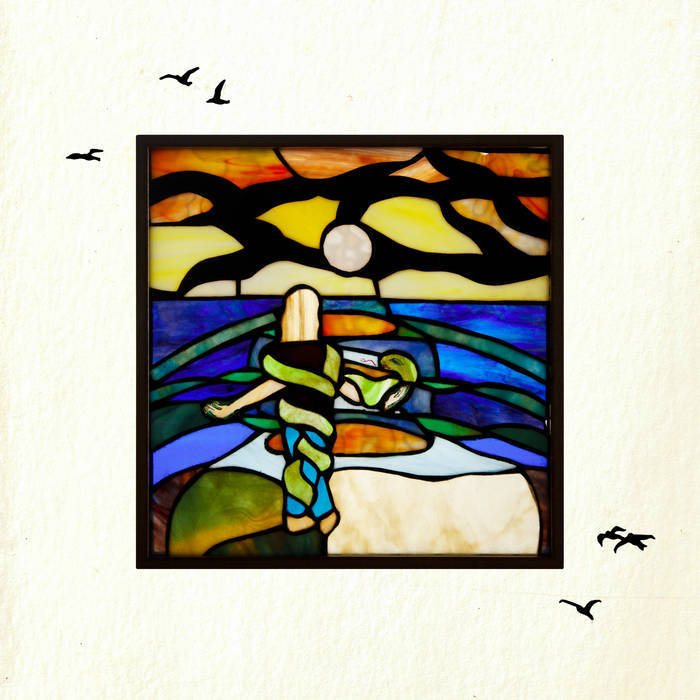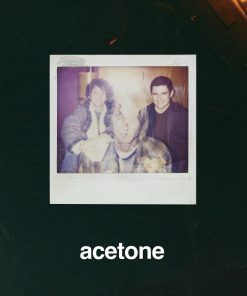Naima Bock – Giant Palm LP Sub Pop
$ 24,98 Original price was: $ 24,98.$ 14,99Current price is: $ 14,99.
The roots of Naima Bock’s music are far reaching. Born in Glastonbury to a Brazilian father and a Greek mother, Naima spent her early childhood in Brazil before eventually returning to England and various homes in South-East London. This heritage combines with more recent pursuits in Naima’s music. From the Brazilian standards that the family listened to while driving to the beach, to the European folk traditions she tapped into on her own, and the pursuits that interest her today – studies in archaeology, work as a gardener, and walking the world’s great trails – Naima’s music draws from family, the earth and music handed down through generations.
Naima’s debut album Giant Palm is undoubtedly infused with the Brazilian music of her youth and regular family visits. She found inspiration in “the percussion, the melodies, chords – and particularly the poetic juxtaposition of tragedy and beauty held within the lyrics.” By the age of 15 Naima was embedded in the music scene of South-East London, eventually forming Goat Girl with school friends and touring the world. After six years playing bass in Goat Girl, Naima left the band to try something new. She set up a gardening company and started a degree at University College London in archeology because, as she jokes, “I liked being near the ground.” During this time she wrote music, played guitar, learned violin, worked with ever-shifting South-London collective Broadside Hacks, and met producer and arranger Joel Burton through Memorials of Distinction label head Josh Cohen. Joel’s burgeoning interest in Western classical music, global folk music, experience in large scale arrangement and orchestration informed the collaborative process that eventually culminated in Giant Palm. Recorded with the help of over 30 musicians (including Josh Cohen on synth/electronics) by Dan Carey of Speedy Wunderground at his studio space in Streatham, South-East London, and engineered by Syd Kemp, the songs on Giant Palm represent a snapshot of a specific feeling, of brief moments in Naima’s life that make up a larger whole. The expansive yet delicate arrangements highlight Naima’s love for the collectivist values of traditional folk music, in which songs belong to everyone, and singing can take on countless forms without the need to exactly replicate something. “All the other representations that I’d had of singing felt so unattainable” she recalls. Giant Palm finds Naima bucking these expectations to let her unique voice and sense of communal creativity flourish.
Fast Shipping and Professional Packing
We offer a broad range of shipping options due to our long-running partnerships with UPS, FedEx and DHL. Our warehouse employees will pack all goods to our exacting requirements. Your items are carefully inspected and secured properly prior to shipping. We ship to thousands of customers every day from all over the world. This demonstrates our dedication to becoming the largest online retailer in the world. Warehouses and distribution centres can be located in Europe as well as the USA.
Note: Orders that contain more than one item will be assigned a processing date depending on the item.
We will carefully examine all items before sending. Today, the majority of orders will be shipped within 48 hours. The expected delivery time will be between 3 and 7 days.
Returns
Stock is dynamic. It's not completely managed by us, since we have multiple entities, including the factory and the storage. The actual inventory can fluctuate at any time. It is possible that the stocks could be depleted after your order has been processed.
Our policy lasts 30 days. If you haven't received the product within 30 days, we're not able to issue a refund or an exchange.
To be eligible for a refund the product must be unopened and in the same state as when you received it. The item must be returned in its original packaging.
Related products
Uncategorized
Uncategorized
Uncategorized
Uncategorized
Uncategorized
Uncategorized
Uncategorized
Uncategorized
Acid Mothers Temple & The Melting Paraiso U.F.O. – Myth of the Love Electrique 2LP Riot Season (UK)
Uncategorized
Uncategorized
Uncategorized
Uncategorized
Uncategorized
Uncategorized
Uncategorized
Uncategorized
Uncategorized
Uncategorized
Uncategorized
Uncategorized
Uncategorized
Uncategorized
Uncategorized
Uncategorized



































